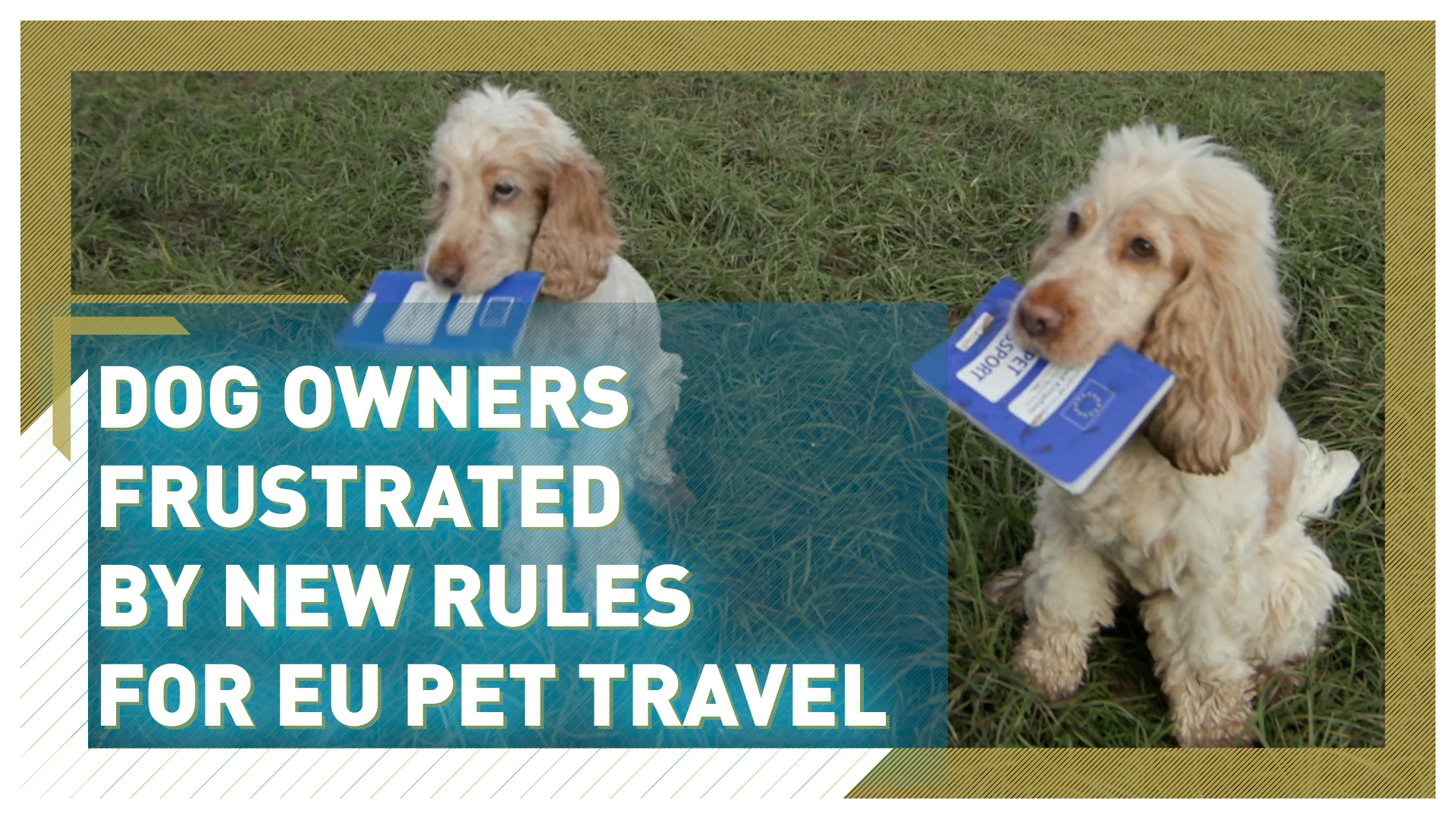03:27

Two sprightly spaniels, Toastie and Blossom, enjoy their daily morning scamper around a rain-sodden park near their North London home. This adventurous pair also like to roam beyond the capital, to the south of France for sunny summer holidays. But from January 1, 2021, the document which allowed them that ease of travel, the EU pet passport, becomes invalid.
For dog owners Rob and Elaine Cole, it is a disappointment. Travelling abroad without their pets is inconceivable. "They're completely part of the family. I couldn't do without them," says Rob. "They enjoy being with us, they love being with us."
The EU has granted the UK "part 2-listed" status for post-Brexit pet travel. That means pets would require a single-use animal health certificate each time they enter an EU country. They can only cross borders at designated ports of entry.

CLICK: IS THE FUTURE OF TOYS GENDER-NEUTRAL?
In short, travel with a dog is not impossible, but it could become more time-consuming, costly and certainly less spontaneous to arrange a trip. "We might have to leave the dogs at home, if it's going to be too difficult to take the dogs with us," says Rob. "And of course, we don't want to. So, we'll end up working like idiots to try and make it work. But it will be very, very frustrating for us."
Help for assistance dogs
For those who rely on assistance dogs, the new regulations have more serious consequences for their day-to-day lives. Anica Zeyen, who has slowly been losing her sight since childhood, travels with her guide dog Lassie to maintain independence when she visits European countries for her work as a senior lecturer. She is concerned about coping under the new system.
"It's already quite a hassle to travel overseas with a guide dog," she says. "But with potential changes that might come, it might be even more bureaucratic, more paperwork. It might take even longer, it might be even more expensive.
"I think it would be amazing if there would be an exemption for any kind of service dog that needs to travel with their owner, because I rely on Lassie and I would love to take her. But with some of the uncertainty and some of the potential new regulations, I wouldn't be able to take her every time I need to travel."

Being partially sighted, Anica Zeyen relies on assistance dog Lassie to get around. /CGTN
Being partially sighted, Anica Zeyen relies on assistance dog Lassie to get around. /CGTN
The charity Guide Dogs is calling for the UK's pet travel status be upgraded to make life easier for blind and partially-sighted people. "This isn't someone choosing to take their dog on holiday: Guide dogs and assistance dogs are obviously there to enable people to travel, whether that be holiday, or work, or to visit family," says Tim Stafford, Director of Canine Affairs at Guide Dogs.
"We do really want to understand why the UK is being treated as a part 2-listed country and not a part 1-listed country, and we want more consideration given to the needs of people with disabilities who are using assistance dogs."
The system means changes for other animals too. The Greek charity Nine Lives sends up to 40 stray cats a year to the UK for adoption, but the fear is that any added bureaucracy could deter prospective British owners.
"We are really, really pushing to promote adoption of stray cats here in Athens itself," says the charity's co-founder Cordelia Madden-Kanellopoulou. "Especially now if Brexit does mean adoptions in the UK get harder, we will be needing to find more really good homes in Greece."
The UK's second-tier pet travel status is one step ahead of no status at all, which some had feared, and pet lovers are hoping for a review at a later date. For now, four-legged friends may have to be left behind at home for any short-notice trips to Europe.

